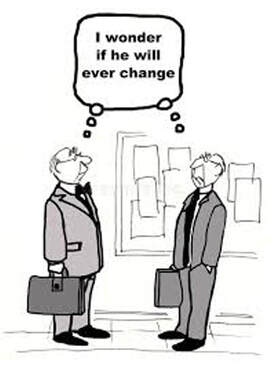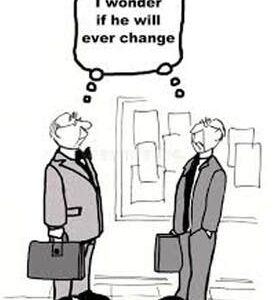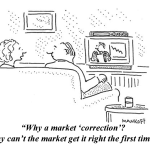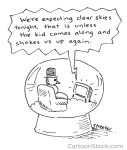“Same As Ever” Insights
The night before the D-Day invasion, Franklin Roosevelt asked Eleanor how she felt about not knowing what would happen next. Eleanor replied; “To be sixty and still rebel at uncertainty is ridiculous, isn’t it?” But we all do it.
The future is uncertain and occasionally intimidating. And its easier to believe one can predict, anticipate or see the future. But it is far more effective to do the opposite. Charlie Munger would call it the process of inversion since looking backwards is often more revealing. The recent book “Same as Ever” written by Morgan Housel provides an extremely useful guide to what never changes. Housel is a business author and partner in the Collaborative Fund with a mission of identifying and supporting companies that live at the intersection of for-profit and for-good.
Change captures our attention because it’s surprising and exciting. But the behaviors that never change are history’s most powerful lessons since the past is a preview what to expect in the future. No one can predict events, timing or duration with consistent reliability, but the study of things that never changes allows one to prepare for an uncertain future with long-term confidence. The following summarizes the most important concepts that will help one become a better investor by improving temperament.
Theme #1: Characteristics of People.
- Natural tendencies include fear, greed, tribal affiliations and social And the degree of susceptibility to emotional reactions.
- Certainty is often judged more important than accuracy. The brain is conditioned to remove doubt quickly. Stories are more powerful than statistics, but most decisions need to remain probability based.
- Understanding cycles. The life cycle of greed causing fear causing greed will always be present. The swings will overshoot reality. One must understand where one is at.
- Perfection is the enemy of
- It’s supposed to be hard. The grind is not easy and will be a little The trick is not minding the pain.
Theme #2: Time and Long-term Expectations.
- Too much, too soon, too fast. Most things have a natural size or speed. And pushing for faster results will usually backfire. Get rich slow.
- Time Horizons. The long run is a collection of short runs you must put up with. Saying a 10-year horizon does not exempt one for all the nonsense that will The question is “how to endure” a never-ending parade of nonsense. Belief alone is not enough. Enduring requires partners, spouses, and co-workers to support one’s belief.
- Long-term miracles and overnight tragedies. Miracles come from compounding good things consistently, but tragedies leave a lasting impression. Over the past 100 years, GDP per capita has increased nearly 10x but its only 3% per annum. Heart disease adjusted mortality is down 70% over 50 years but its only 1.5% per annum. The great financial recession paralyzed many investors still waiting for prices to drop to “get back in the market”.
- Competitive advantages usually deteriorate. Not that long ago, Sears was the largest retailer while also owning Allstate Insurance, Dean Witter brokerage, Coldwell Banker Real Estate, Now it’s irrelevant. In business, there are several variables that erode competitive advantages like arrogance, bureaucracy and complacency.
Theme #3: Risk, Innovation and Information.
- Risk is what you don’t
- Innovation and change will usually happen in response to a crisis, shocks or travesties. This is the time when barriers are removed. Stress removes procrastination and indecision when forced to act.
- Progress requires optimism and pessimism to co-exist. But long-term optimism and progress will win with innovation, productivity and ingenuity. Its natural to think “we are falling behind”.
- Information comes in two types; expiring and permeant. Expiring information is useless but generally dominates people’s attention since its abundant and simple. Permanent information is generally harder to find but needs to be relentlessly pursued. Permanent information reveals the “why’s” and is the source to compound knowledge.
Read and embrace more history than future forecasting. The more familiar one is
with history, people, and time, the more comfortable one will be about the future.
History doesn’t repeat….but it often rhymes
–Mark Twain





